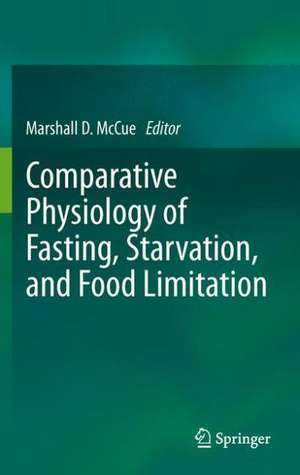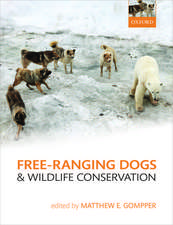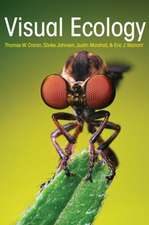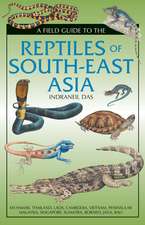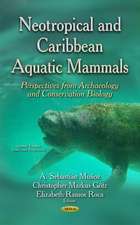Comparative Physiology of Fasting, Starvation, and Food Limitation
Editat de Marshall D. McCueen Limba Engleză Hardback – 17 mai 2012
| Toate formatele și edițiile | Preț | Express |
|---|---|---|
| Paperback (1) | 1223.88 lei 6-8 săpt. | |
| Springer Berlin, Heidelberg – 10 iun 2014 | 1223.88 lei 6-8 săpt. | |
| Hardback (1) | 1056.05 lei 38-44 zile | |
| Springer Berlin, Heidelberg – 17 mai 2012 | 1056.05 lei 38-44 zile |
Preț: 1056.05 lei
Preț vechi: 1389.54 lei
-24% Nou
Puncte Express: 1584
Preț estimativ în valută:
202.14€ • 219.64$ • 169.91£
202.14€ • 219.64$ • 169.91£
Carte tipărită la comandă
Livrare economică 17-23 aprilie
Preluare comenzi: 021 569.72.76
Specificații
ISBN-13: 9783642290558
ISBN-10: 3642290558
Pagini: 444
Ilustrații: XIV, 430 p.
Dimensiuni: 155 x 235 x 29 mm
Greutate: 0.75 kg
Ediția:2012
Editura: Springer Berlin, Heidelberg
Colecția Springer
Locul publicării:Berlin, Heidelberg, Germany
ISBN-10: 3642290558
Pagini: 444
Ilustrații: XIV, 430 p.
Dimensiuni: 155 x 235 x 29 mm
Greutate: 0.75 kg
Ediția:2012
Editura: Springer Berlin, Heidelberg
Colecția Springer
Locul publicării:Berlin, Heidelberg, Germany
Public țintă
ResearchCuprins
Marshall D. McCue: An introduction.- Jean-Hervé Lignot, Yvon LeMaho: A history of modern research into fasting, starvation, and inanition.- Kevin L. Kirk: Starvation in rotifers: physiology in an ecological context.- Allen G. Gibbs, Lauren A. Reynolds: Drosophila as a model for starvation.- Johannes Overgaard, Tobias Wang: Metabolic transitions during feast and famine in spiders.- Nadav Bar, Helene Volkoff: Adaption of the physiological, endocrine and the digestive system functions to prolonged food deprivation in fish.- Frédéric Hervant: Starvation in subterranean species versus surface-dwelling species: crustaceans, fish, and salamanders.- Marshall D. McCue, Harvey B. Lillywhite, Steven J. Beaupre: Physiological responses to starvation in snakes.- Rike Campen, Matthias Starck: Cardiovascular circuits and digestive function of intermittent-feeding sauropsids.- Esa Hohtola: Thermoregulatory adaptations to starvation in birds.- Susanne Jenni-Eiermann and Lukas Jenni: Fasting in birds: general patterns and the special case of endurance flight.- Ulf Bauchinger, Scott R. McWilliams: Tissue-specific mass changes during fasting: the protein turnover hypothesis.- Xueying Zhang et al: Seasonal changes in body mass and energy balance in wild small mammals.- Jehan-Hervé Lignot: Changes in form and function of the gastrointestinal tract during starvation: from pythons to rats.- Edwin R. Price, Teresa G. Valencak: Changes in fatty acid composition during starvation in vertebrates.- Miriam Ben-Hamo et al.: Physiological Responses to Fasting in Bats.- Hank Harlow: Muscle protein and strength retention by bears during winter fasting and starvation.- Duane E. Ullrey: Seasonal starvation in northern white-tailed deer.- Cory Champagne et al: Fasting physiology of the pinnipeds.- Kent A. Hatch: The use and application of stable isotope analysis to the study of starvation, fasting, and nutritional stress.- Kevin Grant: Study and treatment of human starvation in the United Kingdom and India.- Kevin D. Hall: Quantitative physiology of human starvation: adaptations of energy expenditure, macronutrient metabolism and body composition.- Krista A. Varady: Alternate day fasting: effects on body weight and chronic disease risk in humans and animals.- Marshall D. McCue: Horizons in starvation research.
Notă biografică
All animals face the possibility of food limitation and ultimately starvation-induced mortality. This book summarizes state of the art of starvation biology from the ecological causes of food limitation to the physiological and evolutionary consequences of prolonged fasting. It is written for an audience with an understanding of general principles in animal physiology, yet offers a level of analysis and interpretation that will engage seasoned scientists. Each chapter is written by active researchers in the field of comparative physiology and draws on the primary literature of starvation both in nature and the laboratory. The chapters are organized among broad taxonomic categories, such as protists, arthropods, fishes, reptiles, birds, and flying, aquatic, and terrestrial mammals including humans; particularly well-studied animal models, e.g. endotherms are further organized by experimental approaches, such as analyses of blood metabolites, stable isotopes, thermobiology, and modeling of body composition.
Textul de pe ultima copertă
All animals face the possibility of food limitation and ultimately starvation-induced mortality. This book summarizes state of the art of starvation biology from the ecological causes of food limitation to the physiological and evolutionary consequences of prolonged fasting. It is written for an audience with an understanding of general principles in animal physiology, yet offers a level of analysis and interpretation that will engage seasoned scientists. Each chapter is written by active researchers in the field of comparative physiology and draws on the primary literature of starvation both in nature and the laboratory. The chapters are organized among broad taxonomic categories, such as protists, arthropods, fishes, reptiles, birds, and flying, aquatic, and terrestrial mammals including humans; particularly well-studied animal models, e.g. endotherms are further organized by experimental approaches, such as analyses of blood metabolites, stable isotopes, thermobiology, and modeling of body composition.
Caracteristici
The only up-to-date and comprehensive book on starvation biology
Written by active researchers in the field
A valuable source of information for scientists in animal physiology, nutrition, biochemistry and evolutionary adaptation
Includes supplementary material: sn.pub/extras
Written by active researchers in the field
A valuable source of information for scientists in animal physiology, nutrition, biochemistry and evolutionary adaptation
Includes supplementary material: sn.pub/extras
